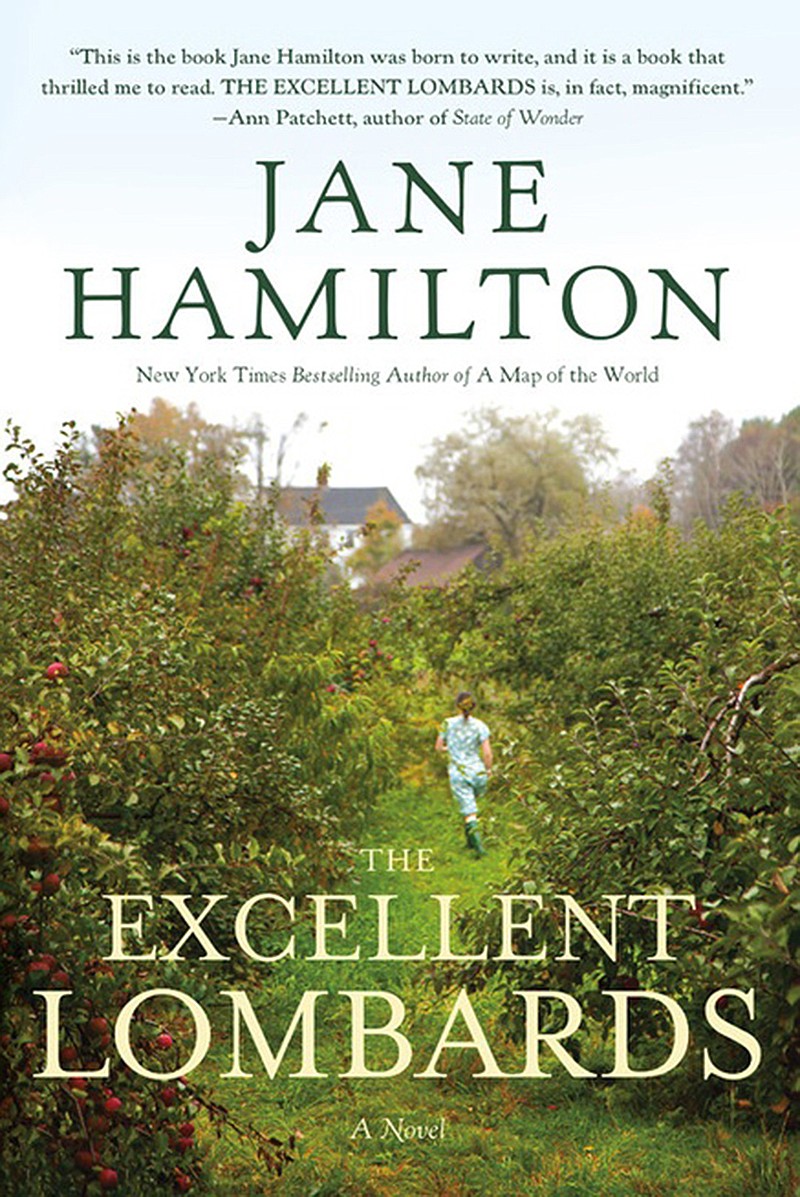The Wisconsin apple orchard that belongs to the Lombard family in Jane Hamilton's hypnotic new novel is a beacon for the nostalgic and the hopeful, those who nurse their memories carefully and tend to them the way the Lombards care for their trees, their sheep, even their poor doomed lambs.
Narrator Mary Frances "Frankie" Lombard describes the appeal thusly:
"On the golden-and-blue afternoons the driveway filled with customers, whole families piling out of cars, to taste and decide, to load up their trunks with bushels of apples and pears, with cider and honey and knitting worsted from the sheep and white packages of lamb chops and legs and shoulders. There were plenty of people who felt, the minute they started down our long driveway, that they were returning to a bygone time. 'Don't ever change a thing,' they cried. 'Don't fix that shed,' they beseeched. 'The old surrey is down there, isn't it, and the Model A? We love this orchard, you guys. It's real, it's special, it's _' They sometimes got teary. 'Tracie, Lizzy, get in here once and take a whiff of the apple barn, oh Lord, this smell!'
But "don't ever change" is a wish that can't come true. How Frankie comes to understand this hard lesson is the heart of this lovely coming-of-age novel.
The Excellent Lombards is Hamilton's seventh book, and though it is funny and heartbreaking, colored with a palpable wistfulness, it feels lighter than some of her earlier works. Hamilton has been writing terrific fiction since 1988, when her first novel, "The Book of Ruth," won the Hemingway Foundation/PEN Award and was chosen as an Oprah's Book Club selection, as was her devastating "A Map of the World" in 1994. Her subject matter was often dark-"A Map of the World," for example, is about what happens when a toddler drowns in a family's well.
But for all its simplicity, "The Excellent Lombards" is deeply affecting, a moving elegy for an idyllic way of life that's slipping away as development and technology encroach and children grow up and away from rural pleasures.
Frankie, of course, has no plan to ever leave her home, which she loves passionately. She is sure that she and her brother William, one year older, will grow up to run the orchard, as they are the fourth generation in a family business mostly owned by their father and his cousin Sherwood. One-fourth of the property is owned by their terrifying Aunt May Hill ("[H]er father, a relative of ours, had accidentally suffocated in a silo on his farm in Indiana, and shortly after that her mother found a rope and hanged herself from a barn rafter. We understood that she did not like anyone, that she did not wish to see you on the path.") The mythology Frankie builds around their hard-working, oddball aunt is one of the book's highlights.
Still, the orchard is a kingdom divided, not exactly at war but bristling with tension, with the lackadaisical Sherwood still bitter over the way Frankie's father worked his way into the legacy. The children invent names for the factions: Velta (where Frankie and William live) and Volta (where their cousins live). Frankie dreams of ruling it all-but unexpected interlopers are on the way.
"The Excellent Lombards" flows through the course of Frankie's childhood-she's looking back at it with equal measures of joy and melancholy. Hamilton, who lives in an apple orchard and has raised her own children there, understands the natural rhythms of rural life and fills Frankie's days with enticing details (how an orchard worker charms her father with a special blend of cider each season) and unsentimental realities (the lambs are adorable but not destined to live long).
The events that delight the children have the feel of moments actually experienced-the annual arrival of the Pumpkin Visitors, when glowing jack-o-lanterns appear as if by magic, or Blossom Day, on which Frankie and William are allowed to skip school to spend an entire day outdoors.
But eventually outside forces exert an undeniable pull, like the arrival of the family's first computer in 1990. The adult Frankie, looking back, marvels at William's slow but inexorable retreat, marked by the arrival of the MacIntosh: "What a stealth maneuver he had to make, that perhaps he was making deliberately, his quietness and his absorption in his projects a step-by-step, a careful tiptoe, past me."
But Frankie too finds her own interests betraying her. Even Blossom Day leaves her fidgety. "Those old amusements didn't seem interesting," she confesses. "Had they ever been interesting?"
Hamilton sketches all of her excellent Lombards, especially confused but determined Frankie, with humor and compassion. If anything, this novel is a love story about a family. Riding around the county with her father one day, Frankie realizes: "All the love in the world-it was in our car." All that love, it's in this story, too.

